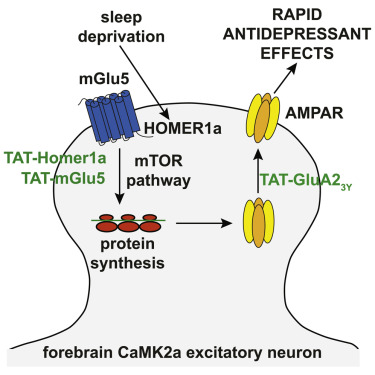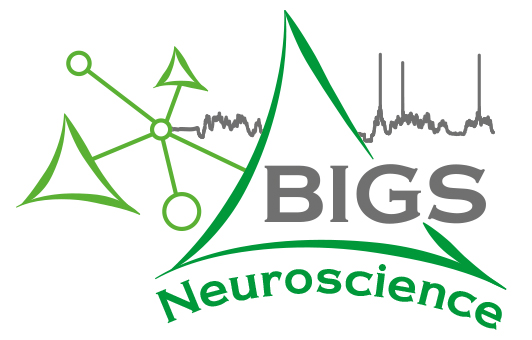M. Schwarz and T. Serchov published in Neuron about the role of Homer1a as a mediator of rapid antidepressant effects via AMPA receptor activation
20/08/2019 9:00 am

Since many years the AG Schwarz is interested in the role of Homer proteins in synaptic function. In the most recent paper on this topic, which was compiled in collaboration with the group of Dr. Tsvetan Serchov from the University Medical Center Freiburg, the molecular pathway of Homer1a’s antidepressant action was deciphered. It soon will appear in Neuron and is already available online:
Amrei Holz, Felix Mülsch, Martin K. Schwarz, Michael Hollmann, Mate D. Döbrössy, Volker A. Coenen, Marlene Bartos, Claus Normann, Knut Biber, Dietrich van Calker, Tsvetan Serchov (2019) Enhanced mGlu5 Signaling in Excitatory Neurons Promotes Rapid Antidepressant Effects via AMPA Receptor Activation. Neuron DOI: 10.1016/j.neuron.2019.07.011
Abstract: Conventional antidepressants have limited efficacy and many side effects, highlighting the need for fast-acting and specific medications. Induction of the synaptic protein Homer1a mediates the effects of different antidepressant treatments, including the rapid action of ketamine and sleep deprivation (SD). We show here that mimicking Homer1a upregulation via intravenous injection of cell-membrane-permeable TAT-Homer1a elicits rapid antidepressant effects in various tests. Similar to ketamine and SD, in vitro and in vivo application of TAT-Homer1a enhances mGlu5 signaling, resulting in increased mTOR pathway phosphorylation, and upregulates synaptic AMPA receptor expression and activity. The antidepressant action of SD and Homer1a induction depends on mGlu5 activation specifically in excitatory CaMK2a neurons and requires enhanced AMPA receptor activity, translation, and trafficking. Moreover, our data demonstrate a pronounced therapeutic potential of different TAT-fused peptides that directly modulate mGlu5 and AMPA receptor activity and thus might provide a novel strategy for rapid and effective antidepressant treatment.
For more information on the paper or to purchase the full version please klick here or here.
For a German press release from the University Medical Center Freiburg please klick here.

